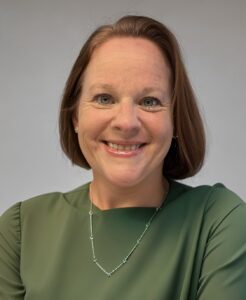
Kristy’s credentialing career started in 2009 at the Federation of State Medical Boards and in 2016 and she began working with DBT-Linehan Board of Certification™ as the Credentialing and Operations Coordinator before becoming the Certification Director. As Certification Director, Kristy has overseen and managed the clinician and program certification process. This includes application review and assignment, degree and licensure verification, status and tracking of all applications, MOC renewals and completion notifications. Kristy serves on several committees including, Program Certification, Publications, Clinician Scholarship, MCMF Program Scholarship, Ethics, Accreditation, and Video Coding committees. Kristy was appointed the Executive Director position by the DBT-LBC™ Board of Directors at the November 7, 2025 quarterly board meeting.
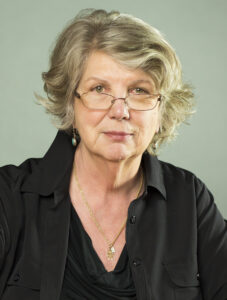
Marsha Linehan is Professor Emeritus of Psychology in the Department of Psychology at the University of Washington and is Director Emeritus of the Behavioral Research and Therapy Clinics, a consortium of research projects developing new treatments and evaluating their efficacy for severely disordered and multi-diagnostic and suicidal populations.
Her primary research was in the application of behavioral models to suicidal behaviors, drug abuse, and borderline personality disorder. She also worked to develop effective models for transferring science-based treatments to the clinical community.
She received awards recognizing her clinical and research contributions to the study and treatment of suicidal behaviors, including the Louis I. Dublin Award for Lifetime Achievement in the Field of Suicide, the Distinguished Research in Suicide Award (American Foundation of Suicide Prevention), and the creation of the Marsha Linehan Award for Outstanding Research in the Treatment of Suicidal Behavior established by the American Association of Suicidology. She was recognized for her clinical research including the Distinguished Scientist Award from the Society for a Science of Clinical Psychology, the award for Distinguished Scientific Contributions to Clinical Psychology (Society of Clinical Psychology,) and awards for Distinguished Contributions to the Practice of Psychology (American Association of Applied and Preventive Psychology) and for Distinguished Contributions for Clinical Activities, (Association for the Advancement of Behavior Therapy).
She was president of both the Association for the Advancement of Behavior Therapy and of the Society of Clinical Psychology, Division 12, American Psychological Association. She was a fellow of the American Psychological Association and the American Psychopathological Association and was a diplomat of the American Board of Behavioral Psychology.
She is the developer of dialectical behavior therapy (DBT), a treatment originally developed for the treatment of suicidal behaviors and since expanded to treatment of borderline personality disorder and other severe and complex mental disorders, particularly those that involve serious emotion dysregulation. In comparison to all other clinical interventions for suicidal behaviors, DBT is the only treatment that has been shown effective in multiple trials across several independent research sites.
It has been shown both effective in reducing suicidal behavior and cost-effective in comparison to both standard treatment and community treatments delivered by expert therapists. It is currently the gold-standard treatment for borderline personality disorder.
She has written four books, including two treatment manuals: Cognitive-Behavioral Treatment for Borderline Personality Disorder and Skills Training Manual for Treating Borderline Personality Disorder, and her memoir, Building a Life Worth Living. She served on a number of editorial boards and has published extensively in scientific journals.
Dr. Linehan is the founder of the Linehan Institute, Linehan-DBT Research, Inc, Empty Cloud Sangha and co-founder of the DBT-Linehan Board of Certification (DBT-LBC), an organization that clearly identifies providers and programs that reliably offer DBT that conforms to the evidence-based research for the treatment.
Linehan was trained in spiritual directions under Gerald May and Tilden Edwards and was an associate Zen teacher in both the Sanbo-Kyodan-School under Willigis Jaeger Roshi in Germany as well as in the Diamond Sangha (USA). She received Dharma Transmission as a Zen Master in the Diamond Sangha from Pat Hawk in April 2012. She was confirmed as a Zen Master in the Empty Cloud Sangha by Willigis Jaeger in June 2012.
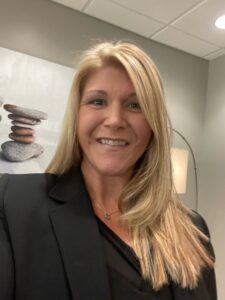
Dr. Vay is a Licensed Professional Counselor and a Certified Professional Counselor Supervisor in Atlanta, GA. Dr. Vay is the founder and owner of Evidence Based Therapy & Consultation of ATLanta, LLC. Dr. Vay is the President of the DBT-Linehan Board of Certification™ and a DBT Linehan Board of Certification, Certified Clinician ™. Dr. Vay has also received intensive training in Radically Open DBT (RO-DBT), Prolonged Exposure-DBT for trauma (DBT-PE), DBT-PTSD, DBT protocol adapted for children (DBT-C) as well as Level One and Two of Theraplay® and Group Theraplay®. Dr. Vay also has experience as a supervisor, Clinical Director, and Program Director.
Prior to working in the outpatient setting, Dr. Vay worked in education as a Department Chair of the Georgia Network for Educational and Therapeutic Support Program (GNETS) before transitioning to the residential setting where, in addition to providing clinical care, she served in several roles and assisted with the development of an Experiential DBT Day Program. While working in the residential facility, Dr. Vay lead the team in becoming the first residential treatment center to become a DBT-Linehan Board of Certification, Certified Program™.
In addition to being a DBT Linehan Board of Certification, Certified Clinician ™, Dr. Vay is an experienced speaker who has presented at multiple professional conferences and facilitate training for clinicians, residential treatment staff, educators, and parents. She is passionate about DBT education and the effective practice of DBT, outside of clinical settings.
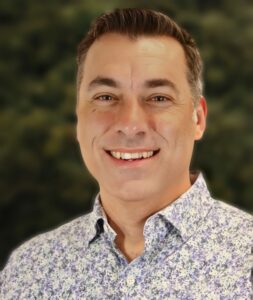
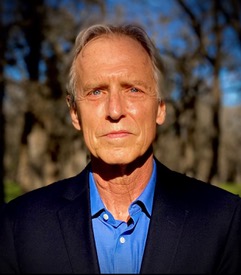
Dr. Schmidt earned undergraduate degrees in Philosophy, and Women’s Studies, and then returned to graduate school 10 years later to begin work on degrees in Clinical Psychology. Intrigued by her inclusion of Zen philosophy, he became a graduate student under Marsha Linehan just prior to the publication of her first manuals and worked as a data manager and analyst on several of her early federally funded research studies. His professional work has been almost entirely with systems of care for youth in residential placements, primarily juvenile justice settings across the United States. Dr. Schmidt was the chair of a workgroup that defined a milieu-based DBT approach in Washington State, where he was also the first clinical director for their state-wide agency. He has worked as an administrator for state-level and national entities in the US and abroad and has trained and consulted with a variety of county, state, and national agencies to support their implementations.
Dr. Schmidt is the original chair of the DBT-LBC Program Certification workgroup, initially working with Marsha Linehan and colleagues to define a process for program self-rating (the Program Fidelity Scale; PFS). He worked with a team of DBT experts on subsequent workgroups to review programs and train reviewers following the establishment of DBT-LBC program certification and, more recently, to develop the second-generation scale of the same name (PFS 2.0), and the supporting measurement tools and processes.
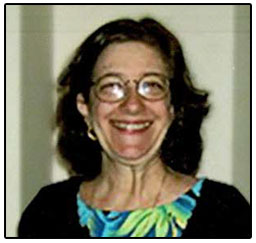
Chris graduated from law school in 1976, and gratefully started to practice real estate law, which was far less adversarial than family law (at least, at that time).
Chris and her husband first became aware of the existence of DBT Therapy when, at a post discharge consultation for their daughter, she (their daughter) informed the psychiatrist at this prestigious institution that was releasing her: “Whatever program you want to send me to, it has to be a DBT Program. That is what will save my life.”
Chris took the first opportunity presented to go out to Seattle and learn DBT from the source. Having done that, she realized that DBT isn’t something you learn once and then move on; it must become a practice. So she became involved in NEA BPD as it was being established, first sitting on the Board, and then being a co-facilitator in the Family Connections Program.
She is still a co-facilitator in the Family Connections Program. And she believes that she learns as much from the group members as they learn from her.
As the Public Board Member of DBT LBC ™, she is honored to bring the perspective of family members to the Board, to broaden the discussion of proposals, and to help increase the availability and the influence of this incredibly effective and life-saving treatment.
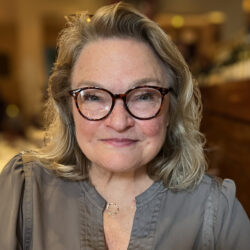
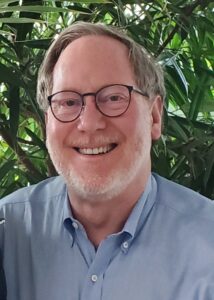
Alan E. Fruzzetti, PhD, is a Research Fellow at the National Suicide Research Foundation/ University College Cork, Lead for supervision & implementation for the National DBT Team in Ireland, on the faculty at Harvard Medical School (now part-time), and professor emeritus at the University of Nevada-Reno. Alan is a co-founder of the Center for DBT and Families, the Center for Trauma and Stress Education, and the World DBT Association, a past-president of the National Education Alliance for Borderline Personality Disorder (NEA-BPD) and on the board of directors of the DBT Board of Certification. He has developed dialectical behavior therapy applications for parents, couples and families and other successful DBT programs for people with suicidality, borderline personality disorder and other problems with emotion regulation, victims of aggression and violence, and the free NEA-BPD Family Connections program for family members. His research focuses on the connections between emotion dysregulation and interpersonal or family processes and the development and evaluation of interventions to help both individuals and relationships. He has authored more than 130 research and clinical papers and book chapters, two books, testified to Congressional committees, and has lectured and trained professionals and the public in more than two dozen countries on BPD, DBT, suicidality, stress and trauma, and DBT family interventions. He received his AB from Brown University and MS and PhD from the University of Washington in Seattle.

Erica Tan, PsyD, received her doctorate in clinical psychology from Regent University. Presently, she is a clinical psychologist in Oregon and Washington and is an Adolescent and Family team member at Portland DBT Institute working extensively with at-risk teens who struggle with self-harming behaviors and suicidality. She also specializes in work with LGBTQ+ individuals and their families. As a senior member of the staff at PDBTI, she provides supervision to post-doctoral residents and clinicians on site. Erica is also a member of the training team and has led 2-day trainings and helped to co-lead the 5 day CITI intensive training sponsored by PDBTI. She also provides consultation to programs and other therapists. Erica has received intensive and advanced intensive DBT training with BTech in 2011 and 2012, additional 2-day DBT trainings, DBT-PE and DBT Adherence, and mindfulness retreats. To support her practice as a psychologist who values empirically supported treatments, Erica is a DBT- Linehan Board of Certification Certified Clinician.

Dr. Alec Miller is a clinical psychologist, trainer, researcher, treatment developer and disseminator of evidence-based interventions to clinical settings, schools and organizations worldwide. He is currently Co-Founder and Co-Director of Cognitive & Behavioral Consultants (CBC) in White Plains and New York City, NY. He is also a Clinical Professor of Psychiatry and Behavioral Sciences at Montefiore Medical Center/Albert Einstein College of Medicine, Bronx, NY. Presently, Dr. Miller also serves as the President of the Access Psychology Foundation (APF), a not-for-profit organization whose mission is to overcome mental health disparities among historically under-represented populations by increasing access to evidence-based prevention, treatment, education and training. He received his B.A. from the University of Michigan in Ann Arbor and his doctorate in clinical psychology from the Ferkauf Graduate School of Psychology of Yeshiva University. From 1995-2015, Dr. Miller served as Chief of Child and Adolescent Psychology, Director of the Adolescent Depression and Suicide Program, Associate Director of Psychology Training Programs, Director of School-Based Mental Health at PS 8 Briggs Academy, and Professor of Clinical Psychiatry and Behavioral Sciences at Montefiore Medical Center/Albert Einstein College of Medicine, Bronx, NY. It is there that Dr. Miller and his colleagues adapted Dialectical Behavior Therapy for adolescents and their families, who were predominantly African American and Latinx. He is the co-author of the leading textbooks and treatment manuals of DBT for adolescents in clinical and school settings. He is a DBT-LBC Certified Clinician as well as the Director of a DBT-LBC Certified DBT Program in New York.
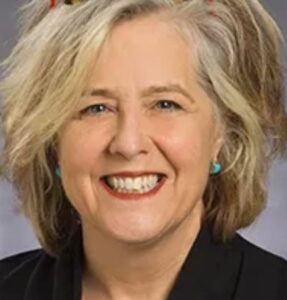
Suzanne Witterholt, M.D. was instrumental in the creation of DBT-LBC. Starting in 2006, she began working with Dr. Marsha Linehan and others to develop DBT certification for clinicians and programs. based model. She served as Vice President of the Board until 2022. Since then, she remains on the Board of Directors as a founding member.
Since 1994, she has worked to implement DBT and other evidenced based practices in the Public Mental Health Sector. In particular, she has helped establish DBT Programs in her home state of Minnesota as well as consulted throughout the United States and Canada.
Currently, she is Medical Director of Emergency Services and Complex Care for Allina Health. She oversees the treatment of people who present to the thirteen Emergency Departments run by Allina Health.
In recognition of her work, she has been named a Distinguished Fellow of the American Psychiatric Association.
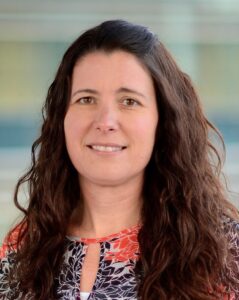
Melanie Harned, Ph.D., ABPP, is a Psychologist and Coordinator of the DBT Program at the VA Puget Sound Health Care System, Seattle Division as well as an Associate Professor in the Department of Psychiatry and Behavioral Sciences and Adjunct Associate Professor in the Department of Psychology at the University of Washington. Dr. Harned has previously worked as the Research Director of Dr. Marsha Linehan’s Behavioral Research and Therapy Clinics at the University of Washington (2006-2018), Director of Research and Development for Behavioral Tech, LLC (2014-2017), and Director of Behavioral Tech Research, Inc. (2013-2016). Dr. Harned’s research focuses on the development and evaluation of the DBT Prolonged Exposure (DBT PE) protocol for PTSD as well as methods of disseminating and implementing this and other evidence-based treatments into clinical practice. She regularly provides training and consultation nationally and internationally in DBT and DBT PE and is licensed as a psychologist in the state of Washington.

